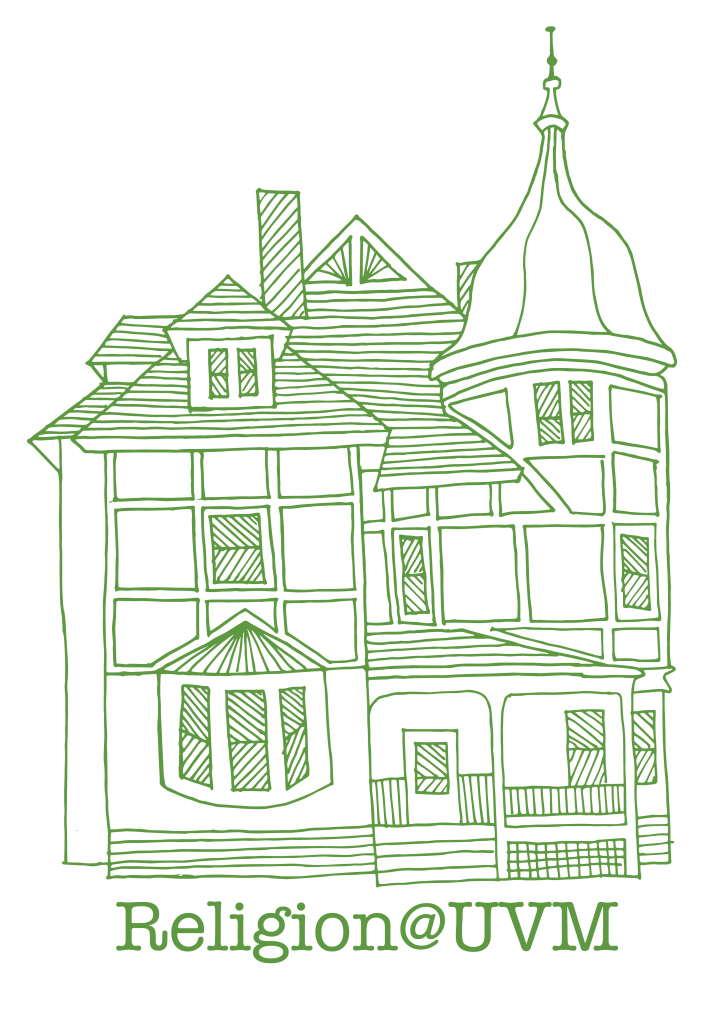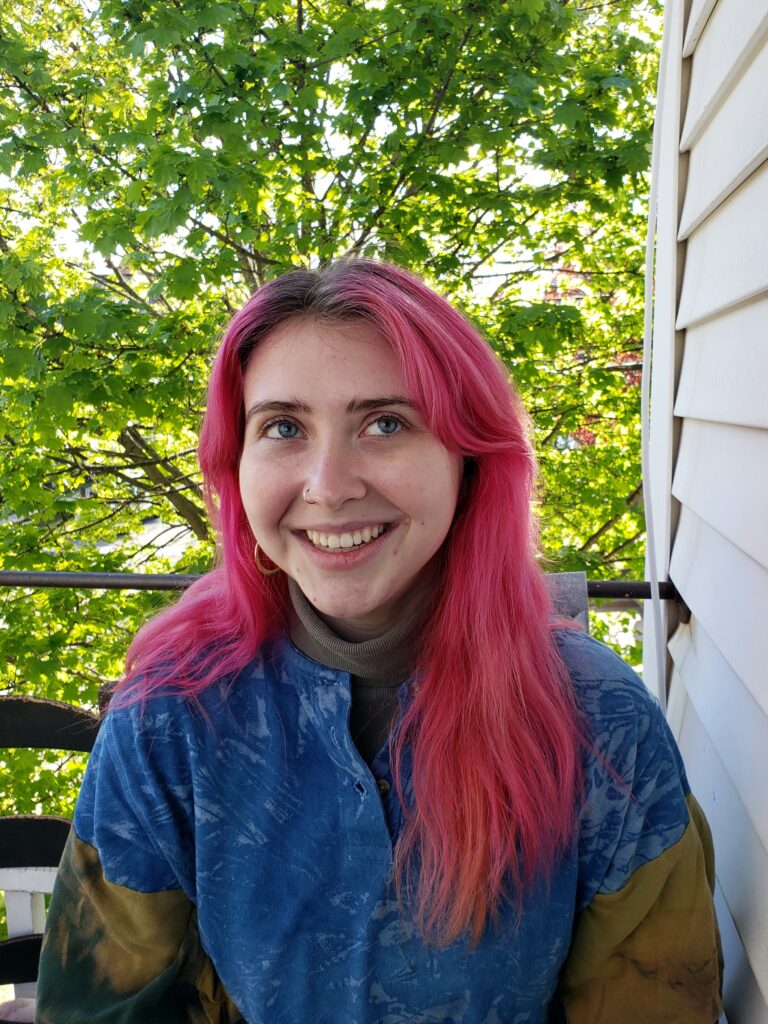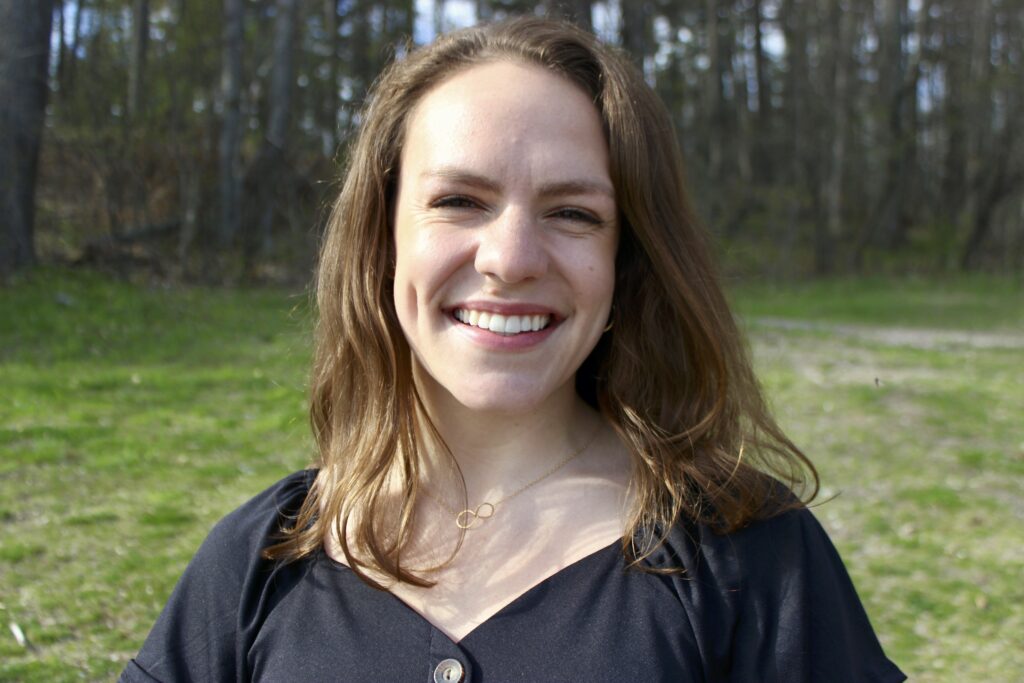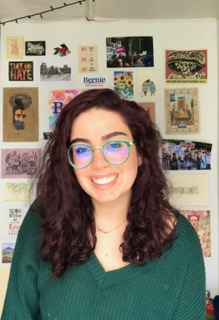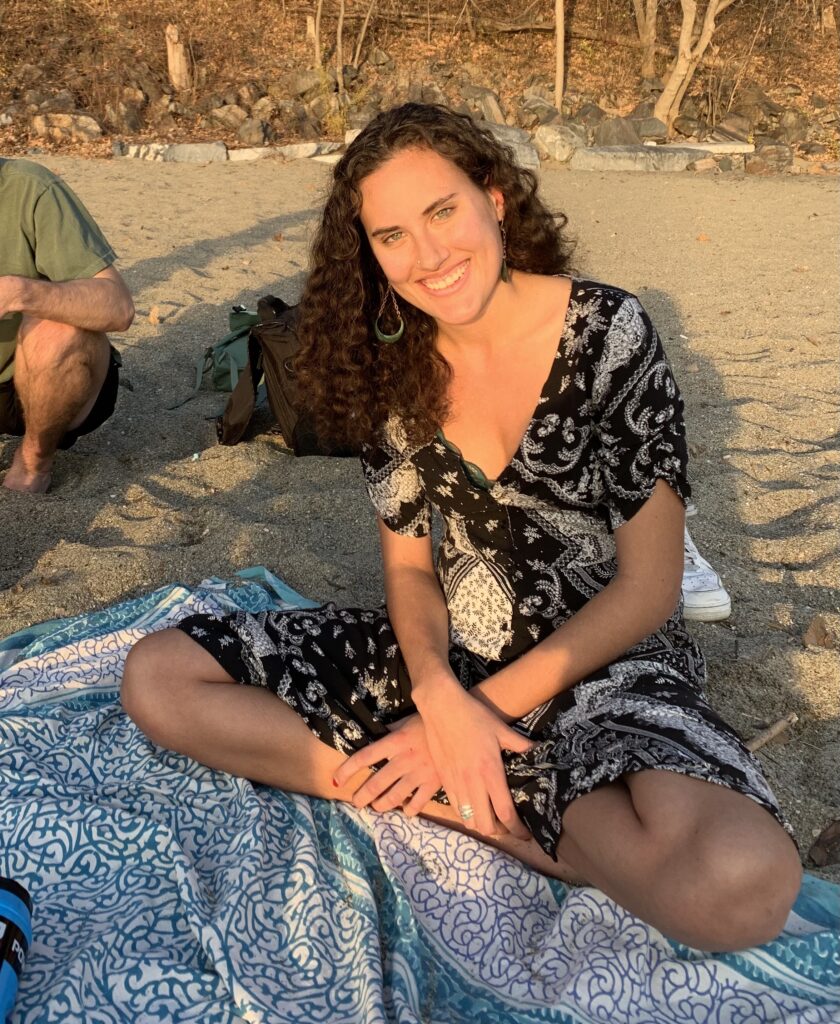I am never uninterested in any aspect of religion, I have found throughout my undergraduate work that these courses have taught me what I really need to know about the world in order to understand people, place, culture, and history, and it has made me recognize that I will always keep learning.
– amelia coates
Why did you major in Religion?
I came to the University of Vermont looking for a passion. I have always been drawn to the humanities and to furthering my education more broadly (AKA I am a total nerd), and I found that passion for religious studies. During my freshman year I took Comparing Religions with Professor Andrus, and from there I took as many religion courses as I could before eventually transferring into the Religion department as a major. I am never uninterested in any aspect of religion, I have found throughout my undergraduate work that these courses have taught me what I really need to know about the world in order to understand people, place, culture, and history, and it has made me recognize that I will always keep learning.
Where do you imagine yourself in 10 years?
In ten years I’m sure I’ll have more degrees (the number remains yet to be seen), but in all sincerity I hope that in 10 years I am able to study what I love with other people who share my passion. If I were to set goals right this second I see myself as the head curator at the British Museum, dismantling the structures that allow for its proliferation of colonialism, or working with migrant and indigenous populations in the United States to understand land rights, reparations, politics, and community healing. I always like to set lofty goals.
Imagine a first-year student has asked your advice about REL courses. What’s the one she shouldn’t dream about missing? Why?
I would say that Mysticism, Shamanism and Possession with Professor Brennan was one of my all-time favorite religion courses and should not be missed by any students. I also would recommend Islam and Race with Professor Morgenstein Fuerst, I have taken many D1 courses and it was hands-down the best one.
If you could write any book, what would it be?
My answer to this question changes every day, but right now if I could write any book I would write something about the framework through which we understand systemic oppression, the necropolitics surrounding marginalized bodies and experiences, and how religious practice informs community mourning and change.
Any fond memories of 481 Main Street you want to share?
I will always cherish every moment at 481 Main. I loved advising office hours with Professor Brennan every semester, I loved every class in the seminar room, and I will never forget my reception of the Religion department mug, which I happily use every morning.
You’re finishing up in the midst of the COVID-19 pandemic. Tell us something about that experience—bonus points for including religion or the Religion Department as a way to think about it!
I think that the Covid semesters have taught me about patience, especially patience with myself and my peers. I also have had the privilege of taking Religion, Health, and Healing with Professor Brennan during this Covid semester and I found the connections between the course materials and our collective life right now to be extremely interesting and inspiring in terms of how we learn to heal from this kind of experience that is so nuanced with history and politics. I have learned that care is about upholding individual experience, and not bogging ourselves down with collective exhaustion.
